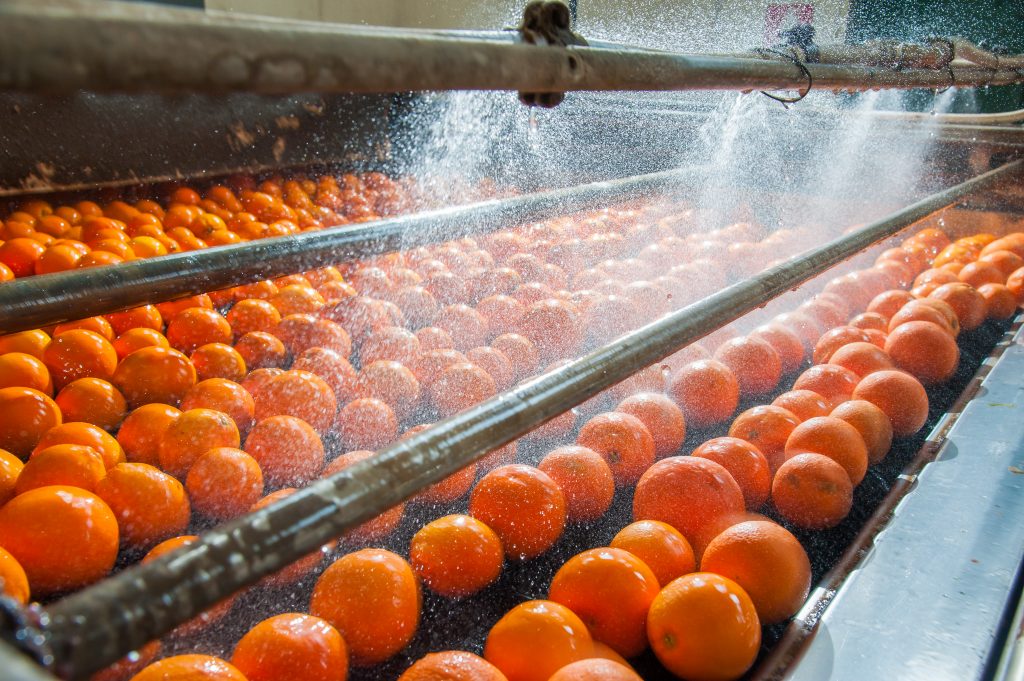You can also listen to this podcast on iono.fm here.
SIMON BROWN: I’m chatting with Justin Chadwick, president of the Citrus Growers Association. Justin, I appreciate the time. We’ve run into issues again with the export of oranges into the European Union. First question: is this the same problem we had last year? Are they worried about false coddling moth and citrus black spot?
Read: South African citrus growers say EU pest rules putting squeeze on exports
JUSTIN CHADWICK: Yes, it is the same issue. Last year in June they brought in some interim measures, and this year they’ve now brought in permanent measures from January 1 that are a lot more onerous than those they introduced last year. So we’ve been requesting the minister to raise this with the EU.
SIMON BROWN: There is a way around this. Essentially the European Union wants the fruit to be pre-cooled to below two degrees Celsius for 20 days. That’s essentially [in] a giant freezer, which is possible, but I imagine at a massive cost.
JUSTIN CHADWICK: Yes. I think the biggest problem at the moment is it’s not possible to pre-cool the volume of fruit that we’re sending to Europe [currently]. That’s the first issue. And, as you say, there is a lot of cost associated with it. So absolutely the issue at the moment is the cost and actually the availability of the infrastructure to make it happen.
SIMON BROWN: We are actually a fairly giant exporter of fruit to Europe. I wasn’t aware just how big it was. It is a significant destination for our citrus.
JUSTIN CHADWICK: Yes, absolutely. This new measure impacts only oranges. In terms of oranges we export about 400 000 tons of oranges to the EU.
SIMON BROWN: That’s not something that we could just send somewhere else. There are processes and relationships and customers in place, and obviously demand in the EU for it. We couldn’t suddenly say, ‘Hey, South America, do you want some of our oranges?’
JUSTIN CHADWICK: Almost all the markets are pretty full at the moment, so it’s not an easy case of being able to divert to other markets.
And then the other factor is that different markets require different sizes of fruit. So the fruit that’s preferred by the EU customers – which actually happens to fortunately fall within the range of most of our oranges – is not necessarily preferred in other markets.
SIMON BROWN: You say that this new EU regulation is around oranges. We are sending other citrus to them and that is going all fine.
JUSTIN CHADWICK: Yes, we do send grapefruit, lemons and mandarins to the EU and there are no issues in terms of those other products.
SIMON BROWN: How big is our citrus industry in terms of labour as well as important in terms of revenue. It sounds gigantic.
JUSTIN CHADWICK: South African citrus is the second biggest exported in the world after Spain. We export about 2.5 million tons of fruit. That’s a huge amount, 160 million boxes.
In terms of foreign exchange earnings we earn about R30 billion per annum from those exports. Then we’ve got about 120 000 jobs on the farm and another 20 000 in the packing sheds.
So just on farm and packing sheds, there are 140 000, and that doesn’t take into account all the labour that’s obviously downstream and upstream in terms of transport, warehousing, etc.
SIMON BROWN: The recent rains that have been in the Western Cape – is this good or bad for the citrus growers, or is it sort of moot and perhaps not raining in their part of the world?
JUSTIN CHADWICK: The Western Cape is the third-biggest producing area. Most of our fruit is produced in Limpopo Province, and the second biggest area is the Eastern Cape. But obviously, it is a significant producer. As you know, the Western Cape does get winter rainfall, so the rainfall at this time of the year is not totally unusual; but perhaps the magnitude of it is quite extreme, so it is negative.
It’s not good to have rain and then harvest the fruit, because it does affect the quality and the shelf life of the fruit. So it’s not great. And obviously, the tremendous amount of rain has impacted the orchards as well in terms of drowning some of the orchards out and washing away some infrastructure. So definitely not a positive scenario for the growers down in the Western Cape.
But the farmers are resilient, they’ll get through it. I understand they are repairing and getting everything back in place, so they’ll be back on track pretty soon.
SIMON BROWN: And farmers have seen rain before. That leads to my next question – concerns around El Niño coming with potentially drier [weather], perhaps even drought. One of those things with farming, I imagine, is that sometimes it happens. Is citrus irrigated to make it perhaps less of an issue?
JUSTIN CHADWICK: It is all irrigated, all of our orchards are irrigated, but obviously, nothing is as good as rain. So you really need the rainfall.
SIMON BROWN: Good old-fashioned rain is always the best. We’ll leave it there.
Justin Chadwick, president of the Citrus Growers Association, I appreciate the time.
Listen to the full MoneywebNOW podcast every weekday morning here.

